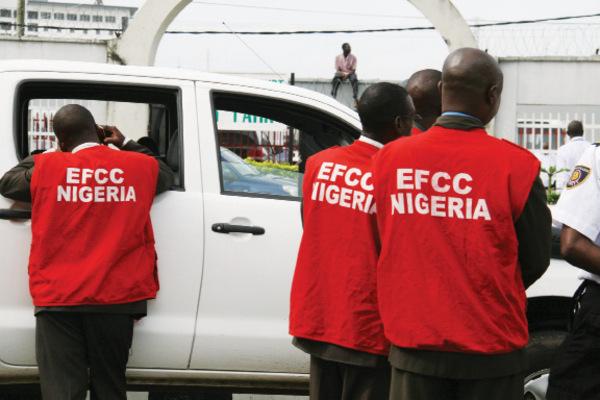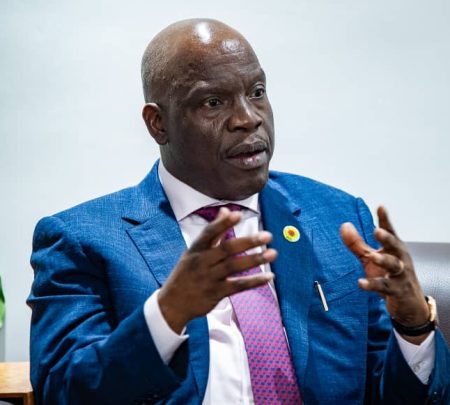 Oscarline Onwuemenyi
Oscarline Onwuemenyi
16 March 2017, Sweetcrude, Abuja – The Petroleum Technology Development Fund has announce it will henceforth interface with oil and gas industry players in implementing its capacity building programmes.
Although the Fund is mandated to build capacity strictly for the oil and gas industry, it has over the years maintained minimal interface with International, National and Local oil companies in the implementation of its mandate.
A new PTDF Strategic Direction Document issued by the Executive Secretary makes it mandatory for industry players to be carried along by PTDF through the creation of linkages with the Nigerian and global oil and gas industry.
“PTDF is marginally connected to the oil and gas industry players. There is an obvious lack of organic relationship between PTDF and the industry because we have not created the necessary linkages with other players.
“There is therefore need for us to reassert our relevance in the oil and gas industry by engaging in a very practical manner with the industry. PTDF has to move near the centre stage of the oil and gas industry by becoming increasingly involved.”
The PTDF Executive Secretary therefore outlined the framework for working with the industry particularly with the Oil Producers Trade Section (OPTS).
According to the Strategic Plan of Action, creating linkages with the Nigerian and global oil and gas industry as a priority by PTDF will result in strengthening of relationships with other public agencies in the Nigerian oil and gas industry; Create strategic collaborations with Nigerian oil and gas industry players (IOCs, NOCs, Service companies); Develop partnership on gas training and skills development centers, and enable the Fund to harness other partnership opportunities with global multi-lateral institutions and ultimately establish bilateral relations with oil and gas bodies across the globe.
Other benefits of increased collaboration and partnership between the Fund and oil and gas industry players and stakeholders as contained in the strategy document include collaboration with the industry towards the training attachment of PTDF trainees with IOCs/NOCs and other global institutions, formation of joint research groups with IOCs/ LOCs towards solving specific industry problems.
Others include interfacing with the oil and gas sector to identify their critical needs which will form the basis for selection of candidates for award of MSc and PhD scholarships and PTDF Annual Oil and Gas Research Grant Competition, and establishment of alumni research clusters with the aim of using PTDF ex-scholars and experts working together from interconnected universities, companies, firms in related industries and associated institutions in order to provide multi-disciplinary solutions to complex industry problems.
In furtherance to the strengthening of relationship with industry players and stakeholders, PTDF Executive Secretary, Dr. Bello Aliyu Gusau has been reaching out to the leadership of public agencies in Nigeria’s oil and gas industry as well as oil and gas associations.
The outcome of a meeting with the Executive Secretary of Petroleum Equalization Fund (PEF) Mr. Ahmed Bobboi led to plans by PTDF to invest in training programmes that will enhance the capacity of Nigerians to play more effective roles in the mid and downstream sector of the industry.
This is because of the critical position of refining, distribution and marketing of petroleum resources to the Petroleum value chain. PTDF has over the years concentrated its human capacity training programmes in developing skills, competencies and capabilities in the upstream segment of the oil and gas industry.
Also meeting with the Chairman, Nigerian Council of the Society of the Petroleum Engineers (SPE) Dr. Saka Matemilola, the PTDF Executive Secretary assured SPE that he is committed to ensuring improved working relationship with oil and gas associations in order to re-integrate the Fund with the Oil and gas Industry.
“One of the things we are doing presently is to ensure that PTDF becomes much more integrated into the Nigeria oil and gas industry and we see organizations like SPE as a bridge for that to happen.”
He further informed the Society of Petroleum Engineers about the refocusing of the Fund’s capacity building initiatives towards harnessing the nation’s gas resources and solicited the collaboration of SPE in achieving the objective.
Dr. Gusau also used the opportunity of his meeting with the Chairman, National Association of Energy Economics, Professor Wunmi Iledare to restate his commitment to forging closer engagement between PTDF and various bodies and associations within the oil and gas industry to facilitate effective manpower development in the sector.
“Your coming to PTDF is at a time when we are making efforts to restructure our activities, to redirect some of our operations, and one of the key things we are focusing our attention on at the moment is closer engagement with the industry, and we see bodies like yours together with SPE and others as the vehicle through which this engagement is going to be carried out.
“So I am looking forward to a more intensive engagement and interface between PTDF and various bodies that populate the industry”.
Other measures contained in the ‘PTDF Strategic Direction’ document affects the implementation of the Fund’s Research Programmes; The Professorial Chair Endowment and the Annual Research Grant Competition.
The Fund will establish two Gas Technology Development Training Centres at the premier centres of excellence already developed by PTDF in Kaduna and Port-Harcourt for training of requisite human capital for the Gas value chain.
In addition, two standard analytical laboratories will be established by the Fund to enhance industry testing of research data and samples which for now are sent to laboratories abroad by industry researchers.
These measures according to PTDF Executive Secretary will lead to job creation and increased entrepreneurial activities as well as reduce capital flight.
The PTDF Strategic Direction document also identified other areas of emphasis by the Fund in the new dispensation. These are: Creating linkages with the Nigerian oil and gas industry with a view to ensuring that the benefits of PTDF capacity building interventions are seamlessly realised through increased participation of Nigerians in all aspects of the country’s oil and gas value chain.
Others include Utilization of oil and gas centres of excellence developed in strategic locations to drive the actualization of the Fund’s mandate; cost cutting and waste reduction through institutionalization of efficient and effective internal processes, full regulatory compliance and due process; ensuring sufficient and sustainable funding through timely release of funds and effective investment, and reposition PTDF to be a major source of cutting edge research for the Nigerian and global industry.
Gusau was appointed Executive Secretary, PTDF on September 26, 2016. In January 2017, he carried out what is considered a far reaching organisational restructuring of the Fund to achieve optimal performance, excellence in service delivery and synergy in departmental functions.
The highlights include the creation of Operational Management and Facility Management Divisions under the Project Department; the merger of Industry Collaboration Unit with the Nigerian Content Department leading to the creation of Industry Collaboration Division(Upstream) and Industry Collaboration Division (Mid and Downstream) both under the Nigeria Content Department; and the creation of a Gas Technology Department to reflect government renewed focus on gas.



